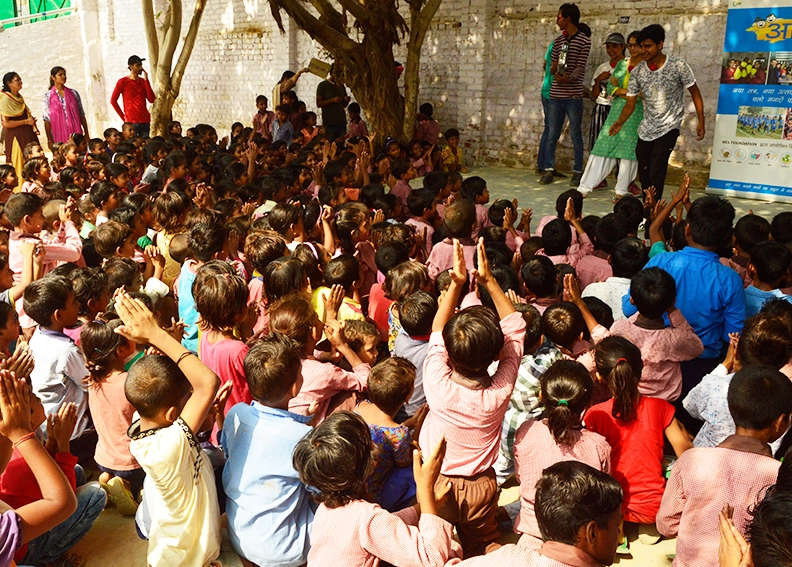

Drama-in-education is an innovative, learner-centred pedagogy that uses dramatic conventions to create safe, inclusive classroom spaces. By temporarily suspending traditional hierarchies between teachers and students—and among students themselves—drama encourages participation, dialogue, and shared ownership of learning.
Techniques such as teacher-in-role, freeze frames, and image theatre support a problem-posing approach to education, where teachers and learners collaboratively explore questions and arrive at solutions together. These methods can be closely aligned with school syllabi, creating rich learning environments that move away from rote memorisation and towards meaningful engagement. Learning becomes a dialogue rather than a monologue.
Drama-in-education is particularly effective in strengthening foundational language and literacy skills. Aligned with the competencies outlined under NIPUN Bharat, drama functions as a holistic, play-based, discovery-oriented, and activity-driven pedagogy—supporting both foundational literacy and broader socio-emotional development among primary school children.
Through sustained engagement, students build self-efficacy and communication skills, tracked through indicators such as improvisation, creativity and imagination, engagement and involvement, and critical thinking. Drama conventions are also used to design customised learning modules on themes ranging from child safety to design thinking.
As part of this process, Kutumb works closely with school educators to co-create and implement these modules, and conducts training-of-trainers workshops to ensure long-term adoption and scalability.
Kutumb’s work in drama-in-education has been supported over the years by Boeing International, ING Vysya Foundation, Thales Group, Sopra Steria India Foundation, HCL Foundation, the French Institute in India and numerous individual donors.